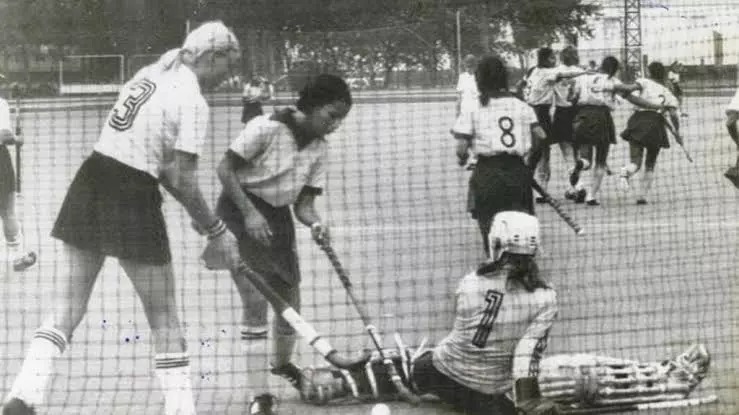
Twenty-seven years before Chak De! India was released, the first Indian women’s hockey players made it to the Olympics. Perhaps those early pioneers would empathise with the trials and tribulations of the fictional players in the film. When women’s hockey was first introduced at the Moscow Olympiad in 1980 as a medal sport, India were one of the six teams that contested for honours. The other nations in the fray were Zimbabwe, USSR, Czechoslovakia, Poland and Austria.
India began their campaign by defeating the Austrians 2–0 at the Young Pioneers stadium in Moscow. Despite the victory, coach Kartar Singh was dissatisfied. Speaking to the media, he declared, ‘I would say what you saw was 50 per cent of the true capabilities of the team.’ Interestingly, the Indian girls began with the battle cry ‘Sat Sri Akaal’, as their male compatriots had done at Moscow. A fairly large contingent of Indian women, some of them Moscow residents, were seen in the stands supporting their team.
In their second match, the Indians beat the Poles 4–0. Yet again, their performance was below par, a fact attested to by their coach. ‘Frankly, they played worse today than against Austria,” he said. ‘They are not clicking the way they should, not combining well at all.’ Despite their unconvincing performances, they had won a large number of fans, evident from the following observation by K Datta in the Times of India: ‘The Indian girls’ performance might not have satisfied the team officials or a few other critics. But it cannot be denied that their two wins so far have won them increasing respect of many a visitor to Moscow’s hockey stadiums.’
India’s campaign was derailed in round three when, in an unexpected result, they lost a close contest to Czechoslovakia 1–2. The defeat, more than the performance of the Czechs, was a result of some atrocious umpiring errors. The Indians were shocked at the two penalty corners awarded to the Czechs, one of which resulted in the winning goal nine minutes from the finish. Antonina Tsetlina, a Soviet lady umpire, awarded the penalty corner. Kartar Singh went ballistic against this decision and suggested that an umpire from a country very much in the race for honours had been posted for the match although there were several umpires from ‘neutral’ countries available. However, in a show of sportsmanship, the Indians did not lodge a formal complaint with the organisers.
Following this defeat, the Indians rallied brilliantly and put up a fighting performance against eventual winners Zimbabwe, drawing the contest 1–1. This left the Indians in second place, with just one match to be played. Despite some bad umpiring decisions yet again against Zimbabwe, India, the Times of India reported, ‘fought gallantly all the way against a very fit looking Zimbabwe side…It was a creditable performance under the added strain of unpredictable whistling.’
In their last encounter against the Russians, the Indian girls frittered away all the good work done against Zimbabwe and the loss meant that they were out of medal contention. Eventually they finished fourth in the competition, the same position that Rani Rampal’s team achieved in Tokyo 41 years later.
EXCLUSIVE
“We will do better than Tokyo,” says Adille Sumariwalla ahead of #Paris2024.
The @afiindia President is focused on holistic progress in athletics at the Olympics, rather than just the medal tally.
He also shared thoughts on @Neeraj_chopra1, @Kishore78473748, and… pic.twitter.com/4oNgyuBrWW
— RevSportz Global (@RevSportzGlobal) July 20, 2024




